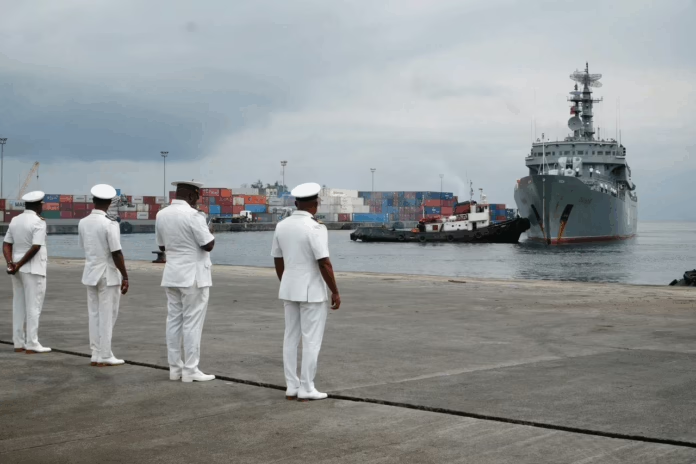Russian naval training ship smolny launches 2025 global voyage from equatorial Guinea

In a display of maritime diplomacy and international military cooperation, the Russian naval training vessel Smolny has officially begun its 2025 international tour, with its maiden port of call in Equatorial Guinea.
This marks the ship’s second visit to the Central African nation and signals a deepening of strategic ties between the two countries.
The vessel, part of Russia’s Baltic Fleet, was ceremonially welcomed at the port of Malabo by senior Equatoguinean naval officers, the Russian ambassador, and other diplomatic representatives. Onboard are nearly 400 personnel, including 200 naval cadets engaged in intensive practical training at sea.
During their stopover in Malabo, the cadets will participate in a series of cultural and military events designed to strengthen bilateral relations and promote mutual understanding.
Scheduled activities include a ceremonial parade, a friendly football match, and interactive sessions with the Russian expatriate community living in Equatorial Guinea.
One of the highlights of the visit was a guided tour of the Smolny for Equatoguinean naval officers, offering a first-hand look at the vessel’s operational capabilities, including its command deck, medical facilities, and crew accommodations.
The visit also underscored the presence of 15 Tanzanian cadets currently undergoing naval training in Russian institutions—highlighting the broader scope of Moscow’s defense education outreach across Africa.
This year’s voyage represents a strategic pivot for the Smolny, as it commences its African route from Equatorial Guinea for the first time.
The ship is expected to proceed to other African nations including South Africa, Tanzania, São Tomé and Príncipe, and the Republic of Congo, before continuing eastward toward its final destination—Vladivostok, Russia—with a stopover in Vietnam scheduled for September.
The Smolny’s visit not only highlights Russia’s expanding military diplomacy in Africa but also strengthens training cooperation, defense readiness, and naval collaboration with partner nations on the continent.
About The Author
dailymailafric
I am an avid African news observer, and an active member of Daily Mail Africa.
I’m Passionate about staying informed on diverse topics across the continent,
I actively contribute to publishing on political, economic and cultural developments in Africa.



